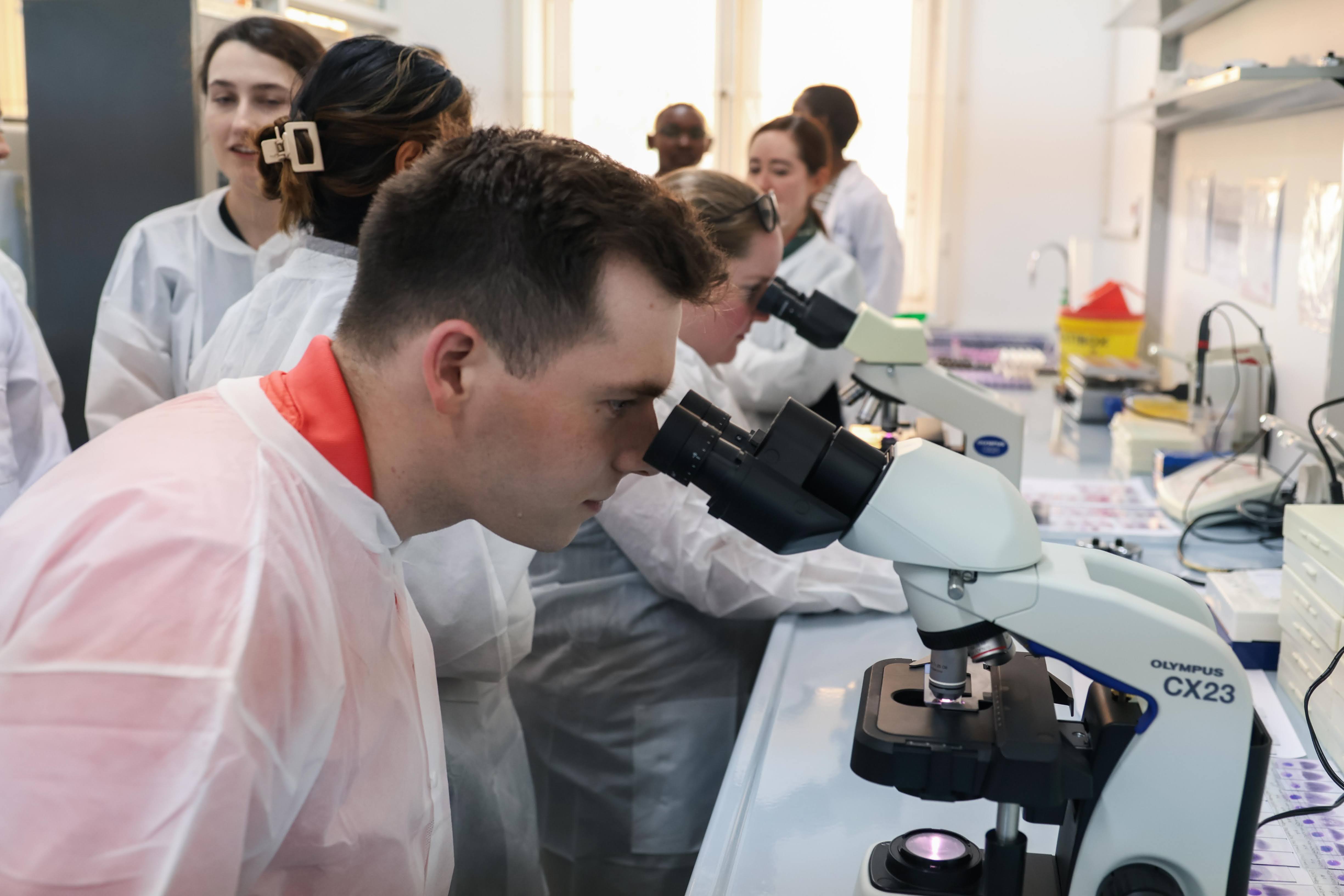
TOUR: US Army Institute delegation visits Ifakara malaria programs

From 21-22 August 2024, the Ifakara Health Institute hosted a student delegation from the Walter Reed Army Institute of Research (WRAIR) in the United States. The delegation, part of the Tropical Medicine program, visited two of Ifakara’s biggest malaria projects to learn about the work being done to combat the deadly disease.
Insights from PMI Shinda (Defeat) Malaria project
On the first day of the tour, hosted by Ifakara’s Chief Executive Director Dr. Honorati Masanja, the delegation visited the Ifakara’s Molecular Labs in Kingani, Bagamoyo.
The visit was organized through the PMI Shinda (Defeat) Malaria project, funded by the U.S. President’s Malaria Initiative (PMI) and implemented by Ifakara and partners.
Led by Col. Jan Maby of the U.S. Army, the delegation sought to gain insights into the molecular research being conducted at Ifakara, particularly under the PMI Shinda (Defeat) Malaria initiative through Therapeutic Efficacy Studies.
Dr. Masanja warmly welcomed the delegation, providing an overview of IHI’s history and emphasizing key programs currently underway. “It’s a pleasure to welcome you to our Kingani facility,” Dr. Masanja remarked. “We hope you have a fruitful learning experience as you see the impactful work being done here, much of which is supported by the U.S. government.”
During the visit, department heads guided the delegation through various sections of the facility, including the clinical trial site, laboratory, insectary, gene drive unit, and experimental huts, showcasing the diverse and advanced research taking place at IHI.
Dr. Sarah Blythe Ballard expressed her admiration, saying, “Visiting this facility is always a special experience, especially seeing the pioneering work that is shaping policy and improving lives.”
Col. Maby echoed her sentiment, praising IHI’s contributions to health research and proposing future collaboration. “Thank you for your hospitality and for sharing your incredible work with us. Our mission at the Military Tropical Medicine program aligns closely with what you are doing here. It would be great to establish a platform for exchanging research on vector work between our institutions.”
The visit highlighted the importance of collaboration and knowledge exchange in advancing global health research and interventions.
Field visit with the Dhibiti (Control) Malaria project
Today, a field visit organized by Population Services International (PSI) and Ifakara Health Institute provided the delegation with valuable insights into the practical aspects of malaria vector surveillance, specifically focusing on Anopheles stephensi.
The visit covered key locations in the Kisutu-Upanga and Kurasini Wards, where the project is actively being implemented, with the participation of several distinguished representatives.
The group was hosted by Prof. Nicodem Govella, the project’s Principal Investigator, and Dr. Yeromin Mlacha, a Research Scientist, who guided the students on the methods used to collect and study mosquito larvae in the local context.
The delegation expressed their gratitude to the Ifakara team for demonstrating the operational aspects of the project. They emphasized the importance of learning from a malaria-endemic country, noting that the knowledge gained is crucial for their soldiers deployed in similar regions.
Ifakara is pleased to have hosted the delegation and looks forward to future collaborations that will further advance malaria control and research efforts.
